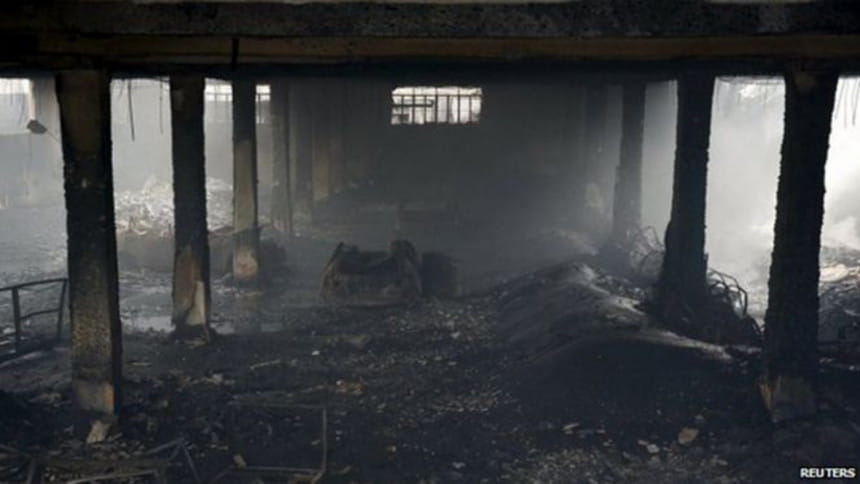Philippine factory fire death toll rises to 72

The death toll has risen to 72 in a fire that gutted a rubber slipper factory in the Philippine capital of Manila, a firefighter said on Thursday, as police vowed swift action against those responsible for the mishap.
Wednesday's fire reflects poor occupational health and safety standards that are a challenge for Southeast Asia's fastest growing nation to tackle, analysts say.
As many as 72 bodies have been pulled from the wreckage of the two-storey factory, fire official Sergio Soriano Jr. said on radio, shortly after Rexlon Gatchalian, mayor of Valenzuela city in Manila, announced a toll of 58, with 13 missing.
Estimates by local government and fire officials have been in conflict since Wednesday, complicated by the difficulties of retrieving bodies from the wreckage.
Police said the fire started when sparks from a welding machine set ablaze flammable chemicals near the main entrance of the factory, triggering a huge explosion, followed by billows of black smoke and flames.
"Definitely there will be charges here, because people died," said Leonardo Espina, acting director of the Philippine National Police.
"Regardless of whether it was an accident or arson, people died. We are just determining what exactly happened so that we can clearly define what charges to file."
Arson investigators have gone to the site to help city police in the probe, he added.
The incident showed President Benigno Aquino's government in poor light, said Eufracia Taylor, an analyst at global risk analytics firm Verisk Maplecroft.
"The factory fire is a blow to the Aquino administration, which has prided itself on improving workplace conditions and prioritising compliance with labour standards," Taylor said.
Factory owner Veato Ang said about 200 to 300 people worked in the factory, which made flip-flops and slippers for Kentex Manufacturing Inc.
Identifying the charred remains of victims will be a difficult task, said Dionesio Candido, whose 19-year-old daughter was among the factory workers.
"I entered the building because I thought I might still be able to identify the remains," said Candido, 62.
But he saw four piles of charred bones and skulls, with the victims appearing to be hugging each other.
"When I saw them, (I felt) any parent or sibling would not be able to identify the victims," Candido added.

 For all latest news, follow The Daily Star's Google News channel.
For all latest news, follow The Daily Star's Google News channel. 



Comments